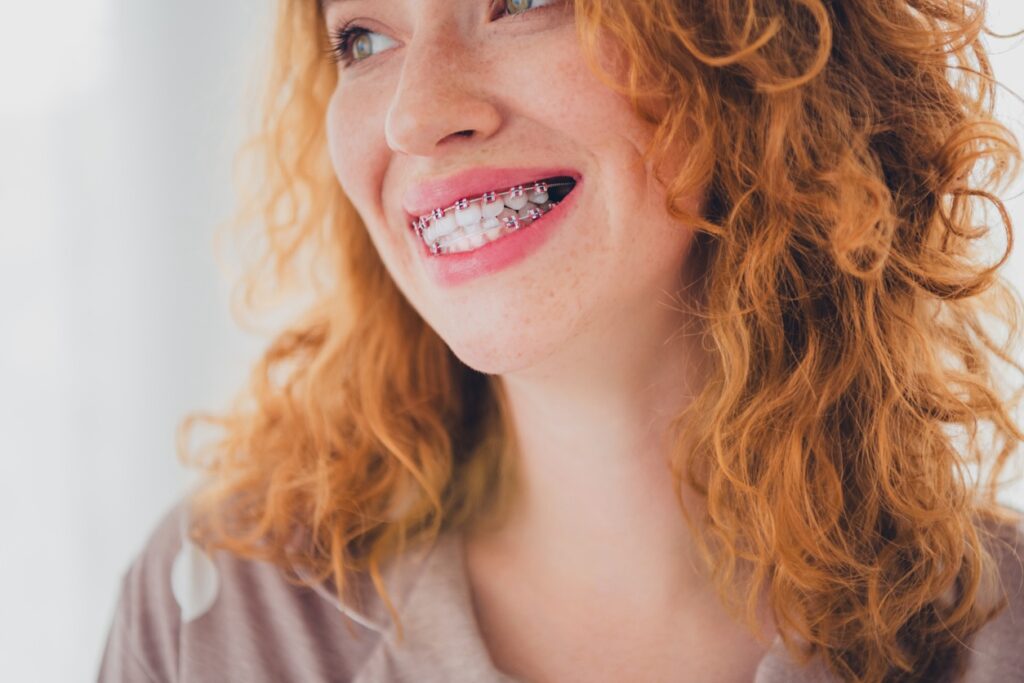At Thabet Orthodontics we understand that each patient is different, and we embrace that by providing a personalized approach to treatment. Our expert team is committed to delivering exceptional braces treatment, a tried-and-true method of giving patients brilliant smiles.
Traditional metal braces are sleeker, smaller, and better than ever before! Whether you’re a parent exploring orthodontic treatment options for your child, a teenager ready to embrace a new smile, or an adult considering orthodontic treatment, braces can help you achieve amazing results. Schedule your complimentary consultation with Thabet Orthodontics today!

What Are Braces and How Do They Work?
Braces are a trusted orthodontic treatment option involving three main components: brackets, an archwire, and elastic bands. Brackets are bonded to each of your teeth and connected by a thin metal archwire, which is held in place by rubber bands. These elements work together to apply constant, controlled, gentle pressure and move teeth to their desired positions over time.
Traditional metal braces are made from strong stainless steel and designed to straighten teeth gradually over time. Throughout treatment, you can customize the colors of your elastic bands and use your braces as a way to show off your style and personality!
Benefits of Braces for Adults
Modern advancements in braces means it’s never too late to achieve the smile you’ve always wanted! Braces offer numerous benefits, including better oral health, which reduces the risk of cavities and gum disease. Plus, a beautiful smile can boost self-esteem and positively impact personal and professional relationships.
Benefits of Braces for Teens
Adolescence is the perfect time to get braces, as teens’ jaws and teeth are still developing. Braces for teens can create comprehensive alignment in mild, moderate and even severe cases of common issues like crowding, gaps, and overbites.
A straighter smile can enhance a teen’s self-confidence and positively affect their interactions with peers at school, friends in extracurriculars, and family members at home.
Benefits of Braces for Kids
Kids can have braces starting as young as 7 years old. At this age, braces can provide children with proactive, early treatment, which ensures jaws and teeth develop correctly. Braces can also help create room for permanent teeth to erupt properly.
Parents will get peace of mind knowing that they are preventing potentially expensive orthodontic treatments and setting their children up for a future filled with bright, healthy smiles.

Braces Alternatives
If you’re looking for a more subtle approach to braces, consider Invisalign clear aligners! This revolutionary, top-of-the-line orthodontic treatment involves a series of clear aligner trays that are nearly invisible, comfortable, and removable, making them a great alternative to braces. As a Diamond Invisalign Provider, Thabet Orthodontics is an expert at using Invisalign to create amazing results.
Start Your Braces Treatment in Germantown, MD Today!
Braces are a powerful orthodontic treatment method for transforming smiles and improving oral health at any age. Our fantastic team at Thabet Orthodontics is here to guide you every step of the way! Contact us today to schedule your complimentary consultation and take your first step towards achieving the smile you deserve.
